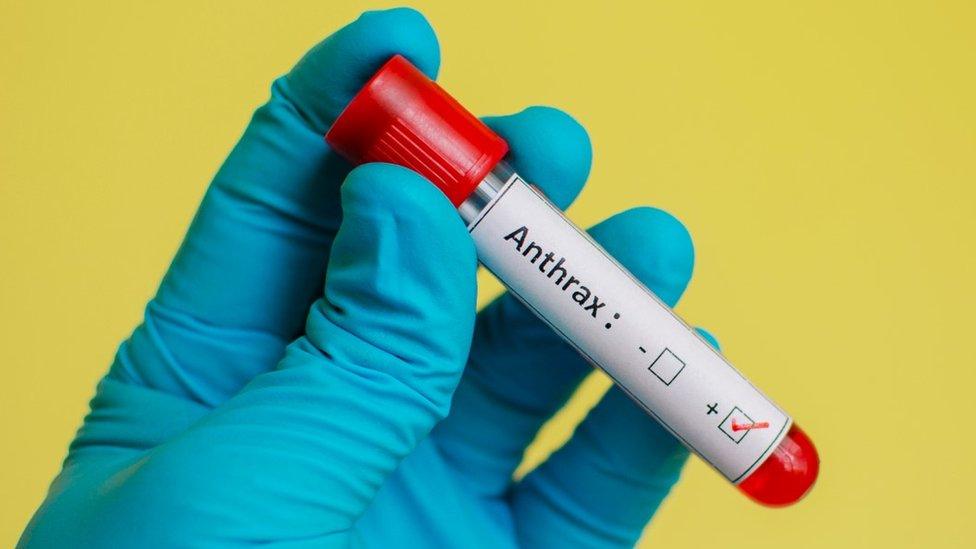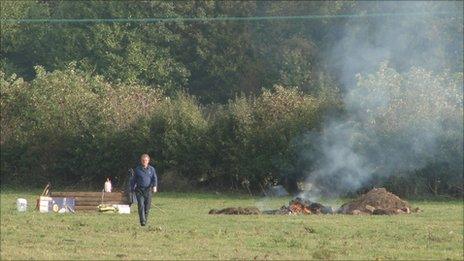Anthrax case confirmed on farm in Westbury, Wiltshire
- Published

The cow confirmed as having the isolated case of anthrax has been incinerated
A case of anthrax has been confirmed in a cow on a farm in Wiltshire, Public Health England has said.
This case was "rapidly detected" after the death of the animal in Westbury last week. The cow has been incinerated and movement restrictions are in place.
Public Health England said any risk of infection to those who were in close contact with the animal was "very low".
Anthrax is a bacterial disease which primarily affects grazing animals, although all mammals are susceptible.

Analysis
James Gallagher, BBC Health and Science reporter
Many people will be familiar with anthrax for its potential as a biological weapon, however, it is an extremely rare infection in Western Europe.
Anthrax is caused by Bacillus anthracis and can be deadly but it struggles to spread from one animal to another or between people.
It largely survives as spores that hide away in soil for years before entering an animal through a cut or wound.
There is a potential risk from eating contaminated meat, however, the infected cow's remains have been destroyed.
Traditionally the people most at risk have been those who handle dead animals, such as abattoir workers.
Anthrax can be treated with antibiotics but treatment needs to start soon after infection.

Human cases of anthrax are very rare - the last case occurred in 2008.
Mike Wade, deputy director of health protection for Public Health England South West, said advice had been offered to any potential contacts.
Wiltshire Council's director of public health Maggie Rae said none of the people who had been in contact with the animal had showed any signs of illness more than 72 hours afterwards.
The farm where the animal tested positive for the disease last had an instance of anthrax in a cow 20 years ago Mrs Rae said.
A footpath near the farm has been closed for more than 72 hours as a precaution, she added.
British Veterinary Association President Sean Wensley said: "This is a case in point about why surveillance is so important; local vets working as part of the broader surveillance network, detecting individual cases for immediate action to isolate and contain them."
- Published13 October 2011
